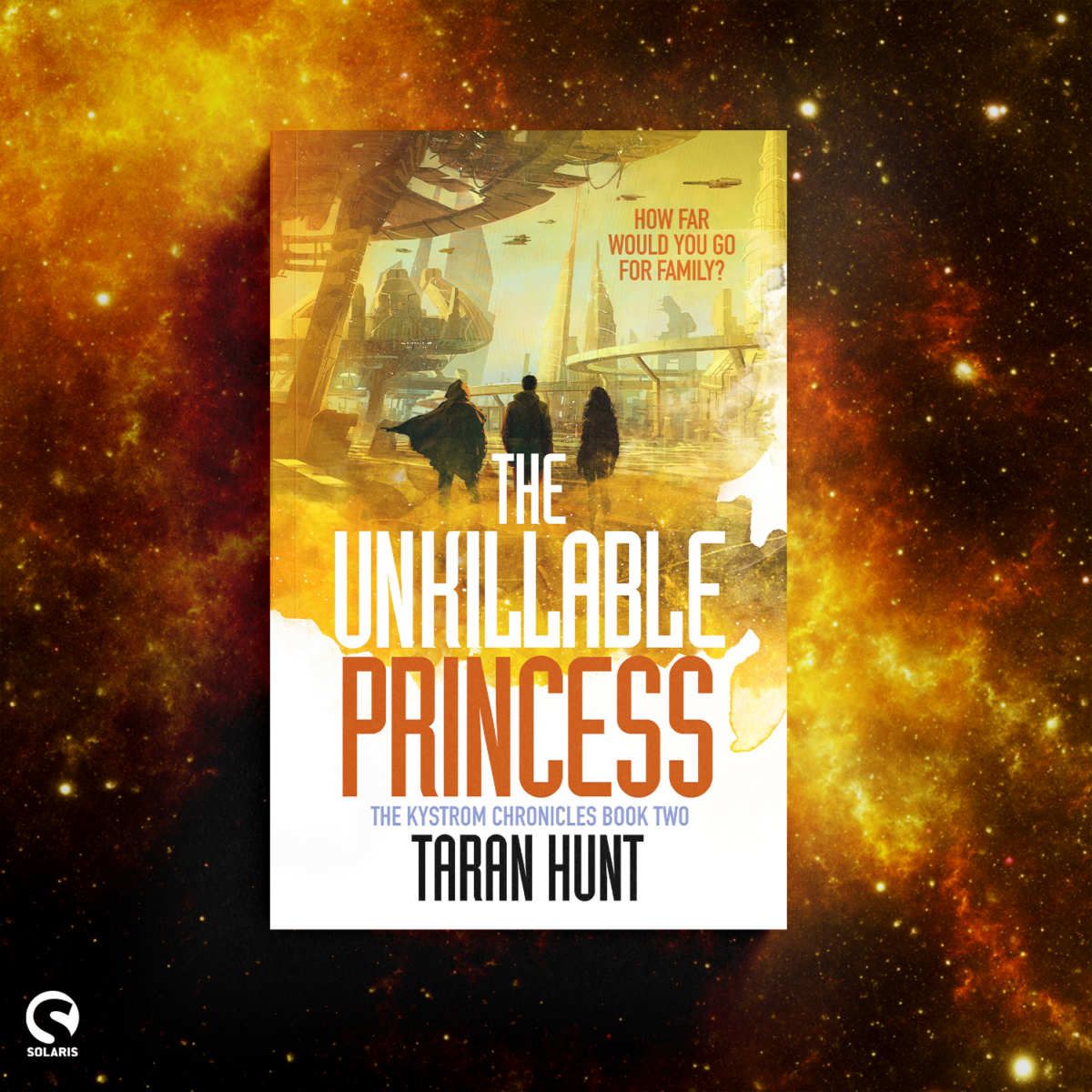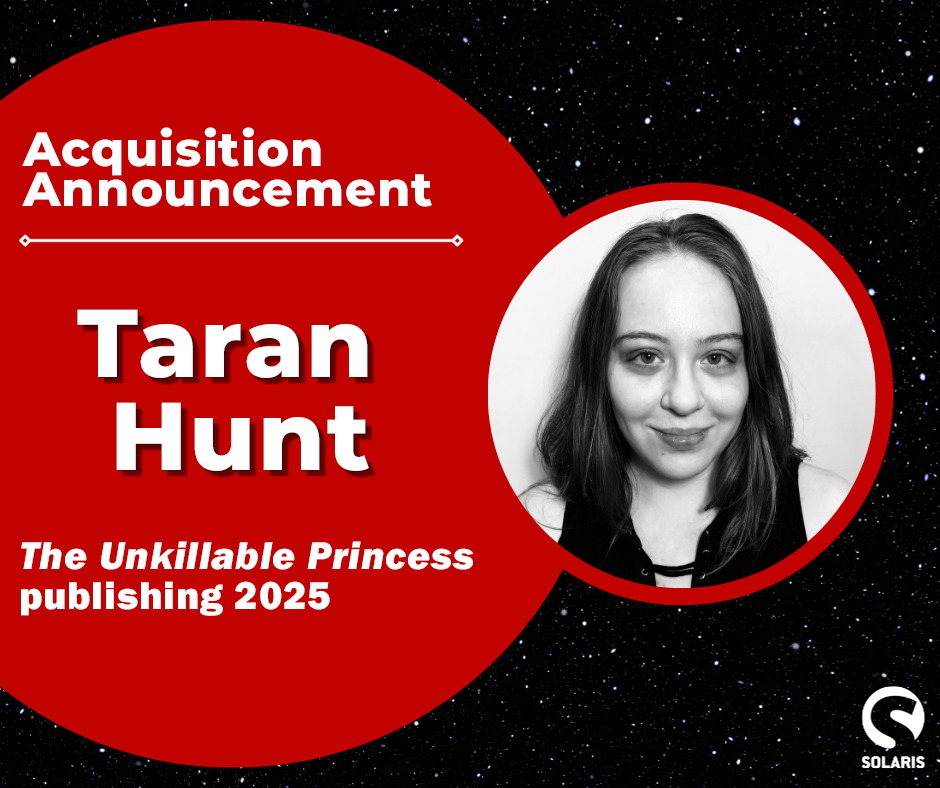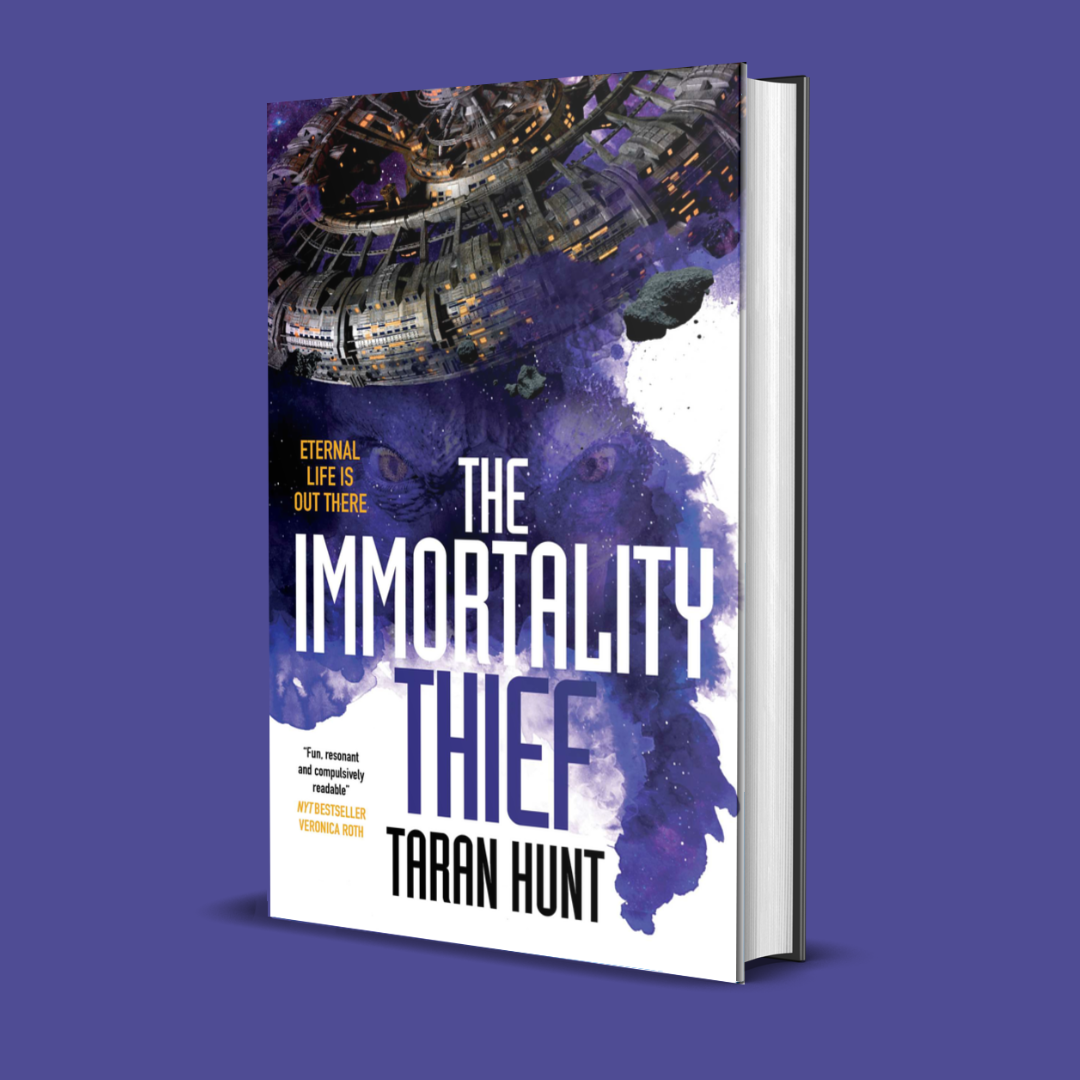
It’s no secret that we love science fiction here at Solaris – and that we’re lucky enough to publish so much of it! – but what is it about the genre that entices our authors?
Well, to celebrate Star Wars Day, we asked some of them just that! And here’s what they had to say…
Lavanya Lakshminarayan
Science fiction holds endless possibilities; it’s as limitless as spacetime, as reflective as an infinity mirror. It can bend and reshape perspectives on reality, and it can frame our visions for the future.
I grew up in India, and we didn’t always have access to a ton of science fiction, but I was lucky enough to have a family that raised me with a sense of wonder. When I was very young, my mother introduced me to Star Wars. The first show I was allowed to stay up late to watch on a school night was Star Trek. One summer, I stumbled upon stacks of science fiction novels in my grandparents’ library—all the classics from the 60’s and 70’s—and I devoured them all.
I didn’t realize until I was much older that I’d seldom encountered characters with names like mine. I possessed a deep-rooted sense of wonder, but while I was tracing the outlines of all these futures, the vastness of the universe didn’t seem to have room for people like me…
And so, I write science fiction to envision the lives of people like me in the future, where our backgrounds and histories and cultures influence the shape of the future, so we get to live that sense of wonder for ourselves, instead of being on the outside looking in.
Science fiction is a place of freedom, where all things are possible, and everyone can belong. This is what keeps me coming back to the page, every single time.
Derek Künsken
Sure, the world is an interesting place, but are there lightsabers here? Phasers? Monsters to trick or fight? Does the real world have cool helmets? What about shiny Cylons? Sure, there’s danger in the world, but is it containable? Defeatable? Punchable? Does real world danger come in bright laser blasts with special effects sounds? Sure, there’s heroism in the world, but do the actions of one person tip the scales, save the good guys? There are cool places in the world, but are they forest moons, gas giants, asteroids, and the dark vacuum of space? There are lots of readers looking for detective mysteries, heart-racing romances of yesteryear or the here and now, political thrillers and so on, but I’ve always wanted to be transported in books and film to other worlds, peopled with strange aliens, to adventures unknown in my world. That’s what I need to see. I don’t know why I write. I just always have – I’ve always needed to. And in writing, I transport myself to other places, other times, and other realities, and hopefully bring along some readers too.
Rebecca Fraimow
Fiction can do a lot of incredible things, but for my money, two of the most powerful are the shock of the new and the shock of the familiar: when a book presents you with a thought, image, or idea that you’ve never had before; when a stranger on a page expresses something that immediately makes you think ‘oh, me too’. I love speculative fiction because it lets you imagine all kinds of different lives that people might live — every possible ‘what if’ under the sun — and the stranger it gets, the more powerful those moments of connection and recognition become. I love the moments when a character who lives in a galaxy far far away experiences something that feels indescribably strange to me, and I love the moments when they experience something that’s so profoundly human that it could have happened to me yesterday buying groceries.
Yoon Ha Lee
It’s 90% true that I’m in sci-fi for the big space battles, because I can be counted on to lower the discourse. But the other reason is that I am very boring and health prevents me from having adventures, and I suspect “trapped in a desperate no-win situation by a maniacally cackling author” is way more fun to read (write?) than to experience. I love that sci-fi allows me to imagine adventures in extraordinary circumstances; that it lets me pose the terrible over-the-top questions, inhabit the terrible over-the-top scenarios, that I would never go near in real life. In real life, I want hot running water, kthx (I have lived in a house without it). I experience the ordinary everyday by existing. It’s the extraordinary, the outright impossible, that I crave.
Also I was that extremely gullible kid who spent years searching my grandma’s closets for Narnia, so there’s that, too.
Ren Hutchings
Science fiction takes us on adventures to worlds both familiar and strange, from eerily-possible near-futures to fantastical alternate realities, and I love it in all its flavours. I adore worldbuilding, and I love discovering more about a fictional universe as a series or franchise expands. But so much of what I love about all genre fiction is the character journeys. Throw in some of my favourite character tropes and I’m all in.
I love a rag-tag crew suddenly pulled into an adventure, I love bickering opposites who’ve lived vastly different lives being thrown together to cooperate, I love an ordinary person called upon to do something extraordinary. Placing a compelling character story against a sci-fi backdrop is the recipe for many of my favourite movies, shows and books, and the original Star Wars trilogy was definitely a formative part of my inspiration to create sci-fi stories of my own.
As I work on the next books in my own series, I’ve thought a lot about how to craft fictional universes that feel like they expand far beyond what’s seen on the screen or on the page. And by contrast, the way a small moment or a tiny corner of that universe can feel immense when seen through a certain character’s lens. Because sci-fi is not only the discovery of new worlds and experiences, but their discovery specifically through the eyes of the characters that live in them.
Edward Ashton
I didn’t set out to be a science fiction writer. I first made a (small) name for myself writing the sort of stories that are published in journals with names like The Southern Missouri Literary Review. After my first child was born, though, I took a break from writing, and when I came back to it years later I decided to try writing the kinds of stories I really loved to read rather than the ones that my writing professors had drilled into my head.
Science fiction has two great virtues that have drawn me to it as both a reader and a writer. First and most obviously, the genre permits incredible creativity. Contemporary fiction is constrained by the contemporary world. That has its own virtues—the defined form of a haiku or a sonnet forces the poet to express herself with far greater precision than free verse—but speculative fiction allows the writer to invent a world purpose-built to illustrate whatever message she’s trying to communicate.
More importantly, the fact that science fiction allows the writer to set a story in a time and place that has no obvious connection to the contemporary world allows the writer to speak directly to the reader about contemporary issues without having emotional blinders get in the way. If I write a critique of modern capitalism set in contemporary New York, some large fraction of my readers will take what I’m saying as a direct criticism of themselves and their lifestyle, and at that point all communication stops. If I set that same critique a thousand years in the future and a dozen light years away, though? Now I’ve at least got a chance of getting my point across.
Also, of course, science fiction has dragons. Who doesn’t love dragons?
Taran Hunt
There are so many reasons to appreciate and enjoy science fiction that I could not narrow down the appeal to a single cause. Instead, here are five reasons that I love science fiction:
- I watched Star Trek: Voyager as a child and imprinted like a baby duck.
- I studied physics in college. Calculating time dilation makes me feel alive.
- Every author must have something inexplicably wrong with them. Art comes from this unresolvable fault in the soul. The fault in my soul involves aliens, somehow.
- Science fiction allows the exploration of what might exist: either elsewhere in the universe, or in our own future. Familiar inter- and intrapersonal conflicts can be represented by unfamiliar and fantastic settings and concepts. The hypothetical and the unfamiliar focus on the familiar in an exciting way.
- Only in science fiction can you find swords on spaceships. Swords. On spaceships.
You might also be interested in:





